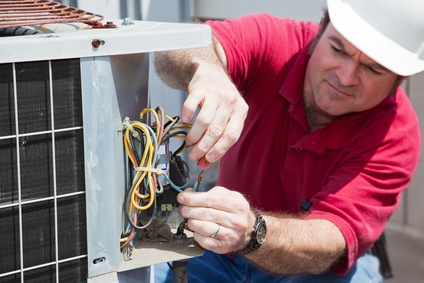1. Complete System Failure
If your HVAC system suddenly stops working altogether, it can be alarming. The first step is to check your thermostat settings and circuit breaker to rule out simple fixes. If those do not solve the problem, call a professional immediately. Prolonged downtime during extreme temperatures can affect your health and safety, so do not delay seeking help. Swift action will get your home back to a comfortable temperature as soon as possible.
2. Refrigerant Leaks
Refrigerant leaks can cause your AC to lose cooling power and put strain on the compressor. You may notice hissing sounds, ice buildup on the coils, or warm air coming from your vents. If you suspect a leak, turn off the system to prevent further damage and contact a licensed technician. As Whitney's go-to HVAC contractor, we know how to quickly locate and repair refrigerant leaks to restore your system's efficiency.
3. Frozen Evaporator Coils
Frozen coils can lead to reduced airflow and eventually cause your system to stop cooling altogether. This can happen due to restricted airflow from dirty filters, blocked vents, or low refrigerant. To handle this issue, turn off the system to let the coils thaw and check your filters for clogs. Then call for emergency HVAC repair so a professional can identify and fix the root cause before it happens again.
4. Electrical Issues or Burning Smells
If you notice burning smells, sparking, or repeated breaker trips, these are serious warning signs. Electrical problems in HVAC systems can be fire hazards and should never be ignored. Shut the system down immediately and call for emergency HVAC repair. Avoid trying to troubleshoot wiring issues yourself, as it can be dangerous without proper training.
5. Gas Leaks or Strange Odors
Gas leaks are among the most dangerous HVAC emergencies. If you smell sulfur or rotten eggs, leave the home immediately and call your gas company. Once it is safe, arrange for an HVAC inspection to ensure there are no other hazards. Unusual odors, even if not from gas, should be checked by a technician as they can indicate mold, mildew, or overheating parts.
Tips to Minimize HVAC Emergencies
While emergencies can happen unexpectedly, a few preventative measures can reduce your risk:
- Schedule regular maintenance to catch problems early.
- Change filters on time to keep airflow strong.
- Clear debris around outdoor units so the system can breathe.
- Listen and look for warning signs like odd noises or fluctuating temperatures.
- Act quickly at the first sign of trouble to prevent costly repairs.
By following these steps, you can help extend the life of your system and minimize the need for emergency HVAC repair.
If your system fails unexpectedly, call Sims Air Conditioning & Heating Inc. right away for fast, reliable help that keeps your home safe and comfortable.
Stay Prepared for HVAC Emergencies
HVAC emergencies are stressful, but knowing how to respond will help you protect your home and your comfort. Keep these tips in mind so you can act quickly if a problem arises. With prompt action and the help of skilled professionals, even the most urgent issues can be resolved with minimal disruption.



